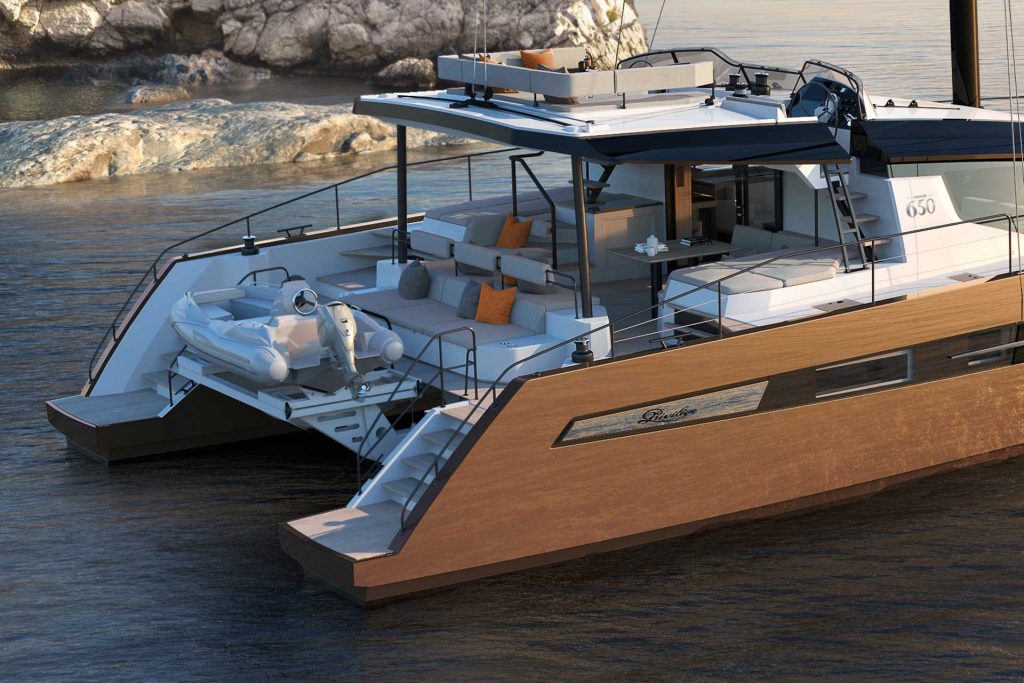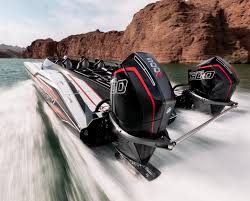Boat Blue Book Value: Comprehensive Guide for Accurate Assessments
When considering buying or selling a boat, it's essential to understand the concept of boat blue book value. The term "blue book value" comes from the Kelley Blue Book, which originally focused on providing values for cars but has since expanded to include other vehicles like boats.

Boat blue book value is an estimation of a boat's market worth based on various factors such as age, condition, and optional equipment.
It is crucial to be aware of this value when entering the world of boating, whether you plan to purchase a new watercraft or sell your current vessel.
Several factors influence the value of a boat, including its overall condition, usage hours, and extras such as upgraded navigation systems.
The boat's age also plays a significant role in determining its value, with newer models usually having a higher worth than older ones.

Besides, current market trends and conditions directly impact the boat's value, so it's essential to stay informed about the boating industry landscape.
Understanding your boat's blue book value can help you make informed decisions when buying or selling a watercraft. Being knowledgeable about various factors that influence the boat's value and how to appraise them accurately will enable you to get the best possible price for your investment.

Key Takeaways
- Boat blue book value helps estimate a boat's market worth based on factors such as age, condition, and optional equipment.
- Current market trends and conditions significantly impact a boat's value, making it essential to stay informed about the boating industry.
- Understanding your boat's value enables you to make informed decisions when buying or selling, helping you get the best possible price.
Understanding Boat Blue Book Value
When it comes to determining a boat's value, there are a few key factors to consider. As a boat owner, I've learned that understanding the boat blue book value is crucial when buying or selling a boat.
In this section, I will briefly discuss the importance of boat blue book value, boat valuation, market value, depreciation, and other relevant factors.
Boat blue book value is an estimation of the worth of a boat based on market trends, boat condition, age, and location. It's important to keep in mind that this value is a rough estimation, and real-world pricing will vary.
One popular tool for determining a boat's value is NADA Guides. They offer boat prices and valuations to help assess the market value of your boat.
Another valuable resource is ABOS Marine Blue Book, which uses real-time data to generate accurate boat values and prices.
Market value, on the other hand, is the price a boat would fetch in its current condition and location. To accurately gauge market value, it's essential to take into account factors such as:
- Boat condition
- Age of the boat
- Location where the boat is being sold
- Demand for the specific make and model
- Additional features or equipment
A boat's value will naturally undergo depreciation over time. Depreciation is the decrease in the boat's value due to age, wear and tear, and other external factors.
As a boat owner, you should keep your boat well-maintained and stay informed about any changes in the market to maintain its value.
When checking boat prices and valuations, it's also helpful to consider resources such as J.D. Power and ABOS Marine Blue Book online. They provide valuable insights into boat prices and can help you better understand the factors affecting your boat's value.
Factors Influencing Boat Value
There are several factors that can affect a boat's value. In this section, I will discuss some of the most important factors to consider when determining the value of a used boat.
Make and Model
The make and model of a boat is an essential factor that greatly influences its value. Different boat manufacturers have varying reputations for quality, construction materials, and performance.
Buyers often prefer well-known brands, which can impact the selling price. Some models also hold their value better due to their popularity and features.
Always check the boat specifications to understand the quality and performance features to consider.
Age and Condition
The age and condition of a boat are crucial factors in determining its value. Older boats tend to depreciate more than newer ones.
Additionally, a well-maintained and minimal wear and tear boat will have a higher value compared to one with extensive damage or signs of neglect. When assessing the condition, inspect both the cosmetic and structural aspects of the boat.
Equipment and Upgrades
A boat's value can be significantly impacted by the installed equipment, electronics, and any optional or custom adjustments made.
Upgraded equipment, such as better navigation systems or updated engine components, can increase the boat's worth. However, make sure these upgrades are properly installed and maintained to retain their value.
Size and Category
Boats come in various sizes and categories, including personal watercraft, sailboats, powerboats, pontoon boats, houseboats, and yachts.
Each category has different characteristics and market demand, which can influence the value. Larger boats tend to have higher purchase and replacement costs, which can increase their value compared to smaller vessels.
Location and Usage
A boat's location and usage can also play a significant role in determining its value. Boats used in saltwater may show more signs of wear and corrosion than those in freshwater.
Furthermore, the local market demand and availability of the same type of boat in that area will affect the selling price.
Maintenance History
Lastly, a boat's maintenance history is vital when assessing its worth. A well-documented and consistent maintenance schedule demonstrates responsible boat ownership, which can positively impact its value.
Potential buyers may be willing to pay a higher price for a boat that has an excellent track record of upkeep and care.
How to Determine Your Boat's Value
Determining your boat's value is crucial for various purposes, such as selling, insurance, and financing.
I personally follow a few tried-and-tested methods to accurately estimate my boat's value. In this section, I will share these methods, which are organized into three subsections: Using Pricing Guides, Online Valuation Tools, and Professional Appraisals.
Using Pricing Guides
The first method I rely on is checking NADA Guides and ABOS Marine Blue Book.
These well-known pricing guides provide updated quarterly data related to market valuations, used boat pricing, and boat valuation. Utilizing these resources helps me to quickly determine a fair price based on the boat's make, model, age, and features.
Also, NADA Guides are a trusted resource for many boat dealers, so referring to it aids in finding a more accurate selling price.
However, it's essential to remember that the information provided by these guides might not be perfect for every case. Boats.com highlights a study that shows NADA boat prices are generally close to the market value but can sometimes deviate.
Online Valuation Tools
I also use online valuation tools, such as BoatCrazy.
It's an easy-to-use website that allows me to input details about my boat, such as make, model, and year, to quickly determine the value.
It's crucial to keep in mind that while online valuation tools are useful, their accuracy is contingent on the information you provide.
Here's how I use BoatCrazy:
- Input my boat's details, including make, model, and year.
- Locate the value of my boat (if available).
- Unlock the valuation to get an accurate pricing report.
Professional Appraisals
Finally, for ultimate accuracy, I consider obtaining a professional appraisal, especially for higher-valued boats.
J.D. Power suggests that the critical factors in determining a boat's value are its type and age.
A professional appraiser can assess these factors more accurately by evaluating the boat's condition and comparing it with similar boats in the market.
Boat Trader provides a rule of thumb: if your boat's value exceeds $5,000, a professional appraisal may be worth the cost, which can range from $300 to up to $500 or more, depending on the boat's size and complexity.
Market Trends and Conditions
As a boating enthusiast, I've been closely monitoring the trends and conditions in the market. It's important to stay updated on these factors when considering the boat blue book value.
In the used boat market, various elements come into play such as demand and supply, inflation, and changing preferences.
I've observed that the used boat market is affected by changes in consumer preferences. For instance, in recent years, there has been an increasing interest in environmentally-friendly boats and fuel-efficient engines. This has led to a surge in demand for electric and hybrid boats, impacting the value of traditional gas-powered boats.
Another key factor is inflation. It's crucial to be aware of how inflation can influence boat values. When inflation rises, it can lead to an increase in the costs of manufacturing and maintaining boats, thus potentially raising the prices of both new and used boats. In times of low inflation or deflation, boat prices could decrease, especially when considering pre-owned models.
Market trends play an essential role in determining the boat blue book value, just like other vehicles. For example, in recent years, versatile boats with built-in fishing and recreational features have gained popularity, increasing their value compared to simple, single-purpose boats. Seasonal factors can also impact the used boat market.
Spring and summer, when boating activities are more frequent, often result in higher demand and, thus, higher prices for pre-owned boats.
Selling and Buying Considerations
Calculating a Fair Selling Price
When it comes to selling a boat, one of the most important factors is determining the right selling price. An accurate valuation of the boat can make the whole process smoother for both the seller and the buyer.
I prefer using a combination of tools and resources, such as the NADA Guides, which allow me to have a better understanding of the boat pricing. Additionally, websites such as BoatCrazy provide accurate boat valuations, making it easier to calculate a fair price.
When setting the selling price, I also take into account the boat's condition, age, and any upgrades or modifications made. It's essential to be realistic and honest about the boat's state to attract potential buyers and ensure a smooth transaction.
Trade-In and Resale Value
If I'm considering trading in my boat at a boat dealer, it's crucial to understand that the trade-in value may be different from the resale value. The trade-in value is often lower because dealers need to factor in the costs of refurbishing and maintaining the boat before reselling it.
To have a better idea of the potential trade-in value, I consult the NADA Guides and other resources to get the pricing information for both trade-in and resale value. This helps me negotiate with boat dealers and make an informed decision on whether to trade in or sell my used boats through other channels.
When I'm on the boat buying side, I use similar resources to ensure I'm getting a fair price for the used boat I'm interested in. If I choose to buy from a boat dealer, I acknowledge that their prices may be slightly higher than private sellers due to the dealer's refurbishment and warranty offerings.
Additional Financial Aspects
Impact of Financing
When it comes to boat ownership, one of the key factors to consider is financing. If you're planning on applying for a boat loan, it's essential to factor this into your overall purchase price.
Boat loans can significantly impact your monthly budget, and as such, it's important to consider loan terms, interest rates, and your credit score when evaluating your options.
Depreciation plays a major role in the financial aspects of boat ownership. Boats, much like cars, tend to depreciate over time, with the most significant loss in value occurring within the first few years of ownership.
To help minimize the effects of depreciation, consider buying a used boat in good condition, which may have already gone through the initial drop in value.

Insurance Implications
Boat insurance is another crucial aspect of boat ownership. The type of coverage you require will depend on factors such as the boat's size, value, and intended usage.
Additionally, some financing companies require specific insurance coverage as a condition of the loan agreement.
Keep in mind that insurance premiums can vary based on your selected plan, the boat's value, and your personal boating history.
When considering boat insurance, it is essential to factor in:
- Deductible: The amount you will pay out of pocket before the insurance coverage kicks in.
- Replacement costs: Some policies will cover the full cost of replacing your boat in the event of a total loss.
- Liability coverage: This protects you financially in case of accidents that result in injury or damage to others.
Supplementary Equipment and Accessories
When determining a boat's value, it's crucial to account for any additional equipment and accessories that may be included. Not only can these items enhance your overall boating experience, but they can also significantly impact the boat's resale value.
In this section, I'll discuss some key supplementary equipment and accessories, specifically focusing on outboard motors, trailers, engines, and rigging.
Outboard motors are an essential component for many boat owners, offering ease of maneuverability and efficient propulsion. It's important to consider the make, model, and age of the outboard motor when evaluating its value.
In general, well-maintained and reliable motors can increase your boat's overall worth.
Trailers also play an important role in the overall value of a boat, as they offer convenient transportation and storage.
High-quality, well-maintained trailers are an added bonus for potential buyers and can positively impact the boat's resale value.
Factors such as materials used (aluminum or galvanized steel), condition, and the presence of custom features are essential to consider when evaluating the value of a trailer.
The type and condition of a boat's engine are crucial factors in determining its value. An up-to-date, well-maintained engine can translate to increased efficiency and performance, enhancing the overall appeal of the boat.
When evaluating an engine, consider its age, hours of use, and service history.
Keep in mind that updated engine specs and maintenance records can contribute to a higher resale value.
Lastly, the rigging on sailboats plays a significant role in overall safety and performance.
Top-quality rigging ensures smooth sailing and better control of sails. When evaluating a sailboat's value, be sure to pay attention to the materials used and the condition of the rigging.
Well-maintained and upgraded rigging can add value and appeal to your sailboat.
Documentation and Records
When determining a boat's blue book value, it's important to consider the documentation and records associated with the vessel. Proper maintenance and detailed records can greatly impact a boat's value.
I highly recommend keeping a thorough maintenance log for your boat, as this can demonstrate that the vessel has been well-maintained over time. This includes records of regular oil changes, engine tune-ups, and any repairs that have been made.
If your boat has undergone any upgrades or added features, such as new electronics or safety equipment, be sure to retain documentation of these improvements as well.
In addition to maintenance records, a complete history of the boat is essential for an accurate blue book valuation.
This includes information about previous owners, any accidents or damage the boat has sustained, and how the boat has been stored—on land or in the water.
The boat's specifications also play a significant role in determining its value, such as ABOS Marine Blue Book values which are influenced by details like the boat's make, model, year, engine type, and overall condition.
While evaluating a boat, I also take note of any additional features that could affect its value. These may include:
- Electronics: GPS, fish finders, or other navigation systems
- Safety Equipment: Life jackets, fire extinguishers, and first aid kits
- Amenities: Air conditioning, refrigeration, or other on-board comforts
Frequently Asked Questions
How can I determine the market value of a used boat?
To determine the market value of a used boat, you can use pricing guides and online tools. I recommend checking BoatCrazy and NADA Guides, as they provide reliable data for various boat types and years.
Additionally, researching local listings and comparing prices with similar boats can give you a good sense of the used boat's market value.
Where can I find the ABOS Marine Blue Book information?
You can find ABOS Marine Blue Book information at BoatCrazy's Boat Values page. The website uses real-time data from ABOS Marine Blue Book to estimate the value of pre-owned vessels based on factors like size, age, model, and condition, as well as location and equipment.
What are the steps to using a free boat value estimator?
To use a free boat value estimator, follow these steps:
- Go to a reliable website, such as BoatCrazy or NADA Guides.
- Enter the necessary information about your boat, including make, model, year, and condition.
- Review the results to get an estimated value for your used boat based on the provided data.
Remember, these estimates should be treated as a starting point, and it's essential to research and understand the local market for better accuracy.
How does the NADA guide affect the valuation of a boat?
The NADA Guides provide pricing information on boats and personal watercraft, alongside other types of vehicles. The data they provide are used by banks, finance companies, insurance companies, and government agencies to determine boat valuations.
By offering comprehensive and accurate boat pricing, the NADA Guides can significantly affect the valuation of a boat in the market.
What factors contribute to the resale value of a powerboat?
Several factors contribute to the resale value of a powerboat, including:
- Age and condition of the boat
- Brand and model reputation
- Engine hours and maintenance history
- Equipment and upgrades
- Market demand for the type of boat
Taking care of your powerboat and keeping up with regular maintenance can positively impact its resale value.
Can I access used boat valuation data online for free?
Yes, you can access used boat valuation data online for free through websites like BoatCrazy and NADA Guides. These websites offer free tools to estimate the value of your used boat based on various factors. However, remember that you need to research and understand the local market for better accuracy.

Q&A With Boat Values Rep
Charlie (Sea Magazine): Good morning, Derrick, and thank you for joining us today to talk about boat valuation. Let’s start with the basics. When assessing the value of power boats, what primary factors do you consider?
Derrick (Boat Blue Book): Good morning, Charlie. It's great to be here. When we look at power boats, the key factors are the boat’s age, physical condition, and the brand or boat manufacturers. As you know, boats depreciate just like cars, but the rate can vary significantly depending on these factors.
Charlie: Speaking of depreciation, how does the age of the boat play into its valuation?
Derrick: Well, newer boats tend to depreciate faster initially. A new boat can lose a substantial part of its value in the first few years. This is something buyers must consider when looking for the best price. However, if a boat is well-maintained, the depreciation curve can flatten out as it ages.
Charlie: That’s interesting. How about the components of the boat, such as the hull, deck, mast, and boom? How do they affect the boat's worth?
Derrick: Each component plays a critical role in valuation. The hull and deck are essential for the boat's overall integrity, while the mast and boom are crucial for sailboats. Any damage or wear in these areas can significantly impact the value. We look at these during our assessments to determine if the boat has been maintained properly.

Charlie: Could non-essential features or upgrades also influence the boat's price?
Derrick: Absolutely, non-essential upgrades can either increase or not impact the value much, depending on what buyers are currently looking for. Features like upgraded boat trailers or advanced navigation systems can be appealing and might add to the boat’s worth, but they won’t necessarily offset the natural depreciation of the boat.
Charlie: When someone is looking to buy or sell a boat, how should they go about finding the exact value?
Derrick: The first step is always to assess the physical condition of the boat and compare it to similar models and years. At Boat Blue Book, we provide a detailed valuation based on comprehensive data from sales transactions, listings, and auctions to give you an accurate figure. This helps both buyers and sellers make informed decisions and ensure they are dealing with fair prices.
Charlie (Sea Magazine): Derrick, for those of our readers considering purchasing new boats, could you elaborate on how the process might differ from buying a used one?
Derrick (Boat Blue Book): Certainly, Charlie. When buying new boats, the valuation process is a bit more straightforward since you're starting with a pristine condition vehicle, much like buying a new car. However, buyers should still consider the depreciation course that kicks in once they take ownership. A new boat loses value the moment it leaves the dealership, which is something to consider when assessing long-term boat worth.
Charlie: That’s a crucial point. Now, when considering the overall course of ownership, what advice would you give to someone trying to maintain or even enhance their boat's worth over time?
Derrick: Regular maintenance is key. Just as you would service a car regularly to ensure its longevity and performance, the same goes for a boat. Keep up with the mechanical maintenance, ensure the hull is in good shape, and keep the interiors clean. These actions help maintain the boat’s worth and appeal should you decide to sell later.
Charlie: It seems like whether it’s cars or boats, the principles of maintaining value are quite similar. Derrick, any final tips for our readers?

Derrick: Yes, I would advise boat buyers, especially those looking into new boats, to really think about the long-term implications of their purchase. Consider how you plan to use the boat, where you'll store it, and of course, how you plan to finance it. These factors all play into the overall satisfaction and value retention of your boat.
Charlie: Thank you, Derrick, for such detailed and practical advice. I'm sure our readers will find this information incredibly useful as they navigate their boat buying and owning experiences.
Derrick: You're welcome, Charlie. I'm glad to provide the information that helps keep boat enthusiasts informed and ready to make the best decisions for their needs and budgets.
Charlie is Editor-in-Chief of Sea Magazine







